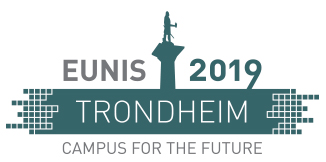Confirmed Keynote Speakers
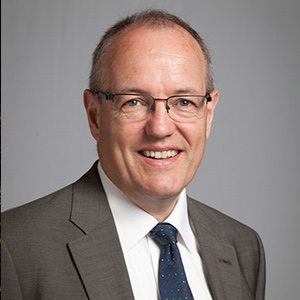
Gunnar Bovim
Rector
Norwegian University of Science and Technology
EUNIS 2019 will be opened by NTNU’s Rector Gunnar Bovim.

Alexandra den Heijer
Professor/chair Public Real Estate
TU Delft
Alexandra den Heijer, MSc PhD is full professor (chair Public Real
Estate) at the Faculty of Architecture and the Built Environment, Delft
University of Technology (TU Delft). She has a background in
Architecture (BSc) and Management (MSc). Her specialisation is
planning, design and management of university campuses and
buildings. She focuses on generating management information for
(public) real estate decisions.
In the past decade, she has developed models and theories that help universities to design and implement their campus strategies and that contribute to creating knowledge cities. She has explored international references and has written many reports, articles and papers on the university and campus of the future, trends and changing concepts and campus strategies. University campuses are examples of built environments that support public goals and have a large impact on society. By managing these buildings – often heritage on iconic locations – universities as large property users/owners need to set an example to society and have a responsibility to implement policies with effective and efficient use of financial resources, resulting in meaningful, functional, affordable and sustainable built environments.
Wednesday 5 June, 09.45 – 10:15
Campus of the future – smart tools and information to support strategic choices
This keynote will elaborate on how universities can learn from each other to improve their campus management information and to support their strategic choices for the campus of the future. It will have 3 parts: (1) a vision on the campus of the future, (2) challenges for campus management and (3) the possible role of smart tools, big data and (collective) management information.
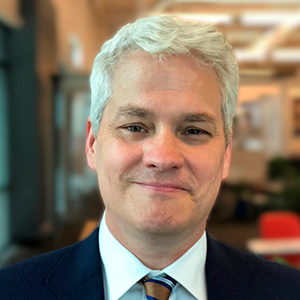
John O’Brien
President and CEO
EDUCAUSE
John O’Brien is President and CEO of EDUCAUSE, an international non-profit association and long-time partner of EUNIS. Prior to this appointment in 2015, John served as senior vice chancellor for academic and student affairs at Minnesota State Colleges and Universities, the fifth largest higher education system in the USA. Prior to this role, John served as president of North Hennepin Community College, director of a statewide “Students First” initiative, a provost, and associate vice chancellor of instructional technology in Minnesota. John holds a bachelor’s degree in English and English education from Augustana College, a master’s degree in Anglo-Irish Literature from the University of Dublin (Trinity College), and a doctorate in English from the University of Minnesota.
Wednesday 5 June, 15:30 – 16:00
The State of Digital Ethics in 2019: Excitement, Caution, and Hope.
Summary: Ethical concerns related to technology innovation are hardly new. Today, however, the hype around educational technology innovation often masks nuanced, powerful, and sometimes grave ethical entanglements. With weekly headlines about ethical ramifications of emerging technologies and the appearance of privacy near the very top of the EDUCAUSE Top 10 IT Issues for 2019, concerns about digital ethics are likely to intensify. In this keynote, John O’Brien will make the case for excitement, caution, and hope in this exceedingly challenging landscape–with higher education potentially leading the way.
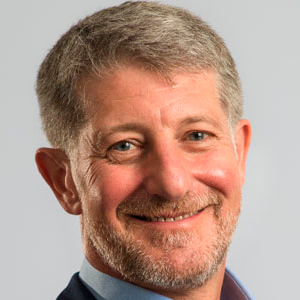
Dr. Paul Feldman
Chief Executive
Jisc
Paul have been chief executive of Jisc since mid-October 2015.
In January 2016, he was listed in The Sunday Times list of Britain’s 500 most influential in the area of engineering and technology.
Thursday 6 June, 15:00 ‐ 15:30
Education 4.0 – looking to transform teaching for 2030 and beyond
The technologies that make up the concept of the Information Revolution 4.0 are already transforming many industries, gradually taking humans out of processes. Jisc believes that these same technologies have the potential to be the long awaited transformation of the way we teach in Higher Education, a change that will come over the next 10 to 20 years and a change that we believe will substantially enhance the student and the lecturer experience. This talk will explain our thinking, the possible opportunities and ways in which you can start to make a difference now.

Lars R. Kruse
Project Manager
Technical University of Denmark – DTU
Friday 7 June, 09:00 – 09:30
Strategy, development and process when establishing learning enviroments on Campus.
A case study and lessons learned from a recent realized project seen from a pedagogical & functional perspective.
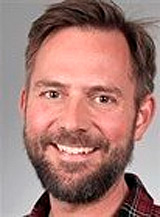
Jesper Engbo Larnæs
Educational Consultant, IT and learning
Technical University of Denmark – DTU
Friday 7 June, 09:00 – 09:30
Strategy, development and process when establishing learning enviroments on Campus.
A case study and lessons learned from a recent realized project seen from a pedagogical & functional perspective.
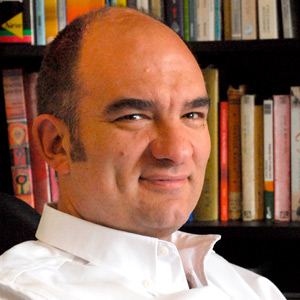
Alejandro Armellini
Professor, Dean of Learning and Teaching, Director of the Institute of Learning and Teaching in Higher Education
University of Northampton
Alejandro (Ale) Armellini is Professor, Dean of Learning and Teaching, and Director of the Institute of Learning and Teaching in Higher Education at the University of Northampton, where his key role is to provide leadership in learning and teaching and learning innovation across all Faculties. His work includes the development, implementation and evaluation of Northampton’s Learning and Teaching Plan, which includes a comprehensive, externally accredited staff development programme leading to professional recognition of teaching in Higher Education (Fellowships). He was also the strategic lead for the redesign of all programmes for active blended learning, in preparation for the University’s move to its new Waterside campus, which opened in September 2018. Ale is a Principal Fellow of the Higher Education Academy and Fellow of the Royal Society for the Encouragement of Arts, Manufactures and Commerce. Ale’s research focuses on learning innovation, online pedagogy, course design in online environments, institutional capacity building and open practices. He holds visiting professorships at several UK and overseas universities.
Friday 7 June, 11:15 – 11:45
Putting learning at the forefront of everything: Active Blended Learning as Northampton’s new normal
The University of Northampton is committed to developing knowledgeable graduates, who are socially responsible, digitally proficient and highly employable global citizens – the Changemakers of the future. Active Blended Learning, Northampton’s new normal in learning and teaching, is our key approach to deliver that aim. The new Waterside campus, which opened in September 2018, is a major catalyst for this innovation to become mainstream: an outstanding space for learning, teaching and research, with no lecture theatres or staff offices. This interactive keynote offers a summary and a critique of the journey so far: the rationale for the changes, the process of pedagogic transformation, the achievements, the challenges we have encountered and of course, those that lie ahead.
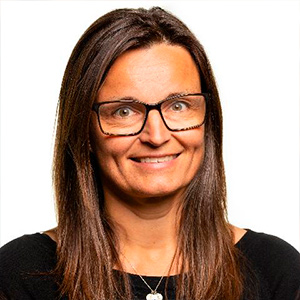
Merete Kvidal
Project Director for campus development
NTNU
Experienced Project Officer with a demonstrated history of working in the public service, higher education industry and private business. Skilled in Leadership, Sustainability, Government, Entrepreneurship, Strategic Planning, Communication and Organizational Development. Strong community and social services professional with high understanding of political processes and systems.
The Project Director for Campus Development sits in the Rector`s Strategic Management Group; the Rector`s Office. She is responsible for the campus development at NTNU on behalf of the Rector. This includes acquisition and development of the knowledge base that ensures that campus is used as a strategic means to strengthen NTNU`s quality and position for the core activities at the university.
Friday 7 June, 11:45 – 12:15
Developing a campus for the future
NTNU has a main profile in science and technology, a variety of programmes of professional study, and great academic breadth that also includes the humanities, social sciences, economics, medicine, health sciences, educational science, architecture, entrepreneurship, art disciplines and artistic activities. Over the next ten years, all NTNU’s academic communities in Trondheim will be gathered from dispersed locations to a single campus located close to the city centre in Trondheim. The main aim of the project is to ensure that NTNU’s campus becomes a strategic tool for realizing NTNU’s academic ambitions. For example, co-location will lower the threshold for working across disciplines, increasingly necessary in order to be able to face and solve the more and more complex challenges our society faces in the years ahead.
A main success criteria in order to acheive strategic goals for the university’s core business/activity is developing the physical infrastructure in line with developing the organization and technology. Project director Merete Kvidal will walk us through key ambitions, success criterias and hindrances in developing a campus for the future.
